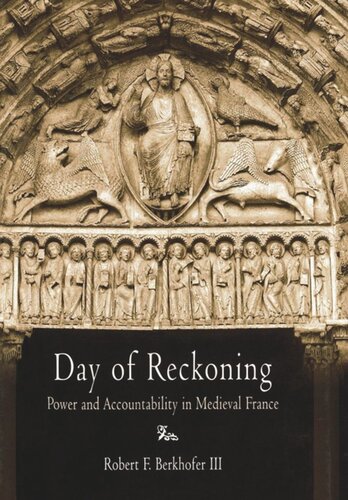

Most ebook files are in PDF format, so you can easily read them using various software such as Foxit Reader or directly on the Google Chrome browser.
Some ebook files are released by publishers in other formats such as .awz, .mobi, .epub, .fb2, etc. You may need to install specific software to read these formats on mobile/PC, such as Calibre.
Please read the tutorial at this link: https://ebookbell.com/faq
We offer FREE conversion to the popular formats you request; however, this may take some time. Therefore, right after payment, please email us, and we will try to provide the service as quickly as possible.
For some exceptional file formats or broken links (if any), please refrain from opening any disputes. Instead, email us first, and we will try to assist within a maximum of 6 hours.
EbookBell Team

4.7
26 reviewsDay of Reckoning: Power and Accountability in Medieval France applies recent approaches to literacy, legal studies, memory, ritual, and the manorial economy to reexamine the transformation of medieval power. Highlighting the relationship of archives and power, it draws on the rich documentary sources of five of the largest Benedictine monasteries in northern France and Flanders, with comparisons to others, over a period of nearly four centuries.
The book opens up new perspectives on important problems of power, in particular the idea and practice of accountability. In a violent society, medieval lords tried to delegate power rather than share it—to get their men to prosecute justice or raise money legitimately, rather than through extortion and pillage. Robert F. Berkhofer III explains how subordinates were held accountable by abbots administering the extensive holdings of Saint-Bertin, Saint-Denis, Saint-Germain-des-Prés, Saint-Père-de-Chartres, and Saint-Vaast-d'Arras. As the abbots began to discipline their agents and monitor their conduct, the "day of reckoning" took on new meaning, as customary meeting days were used to hold agents accountable. By 1200, written and unwritten techniques of rule developed in the monasteries had moved into the secular world; in these practices lay the origins of administration, bureaucratic power, and governance, all hallmarks of the modern state.